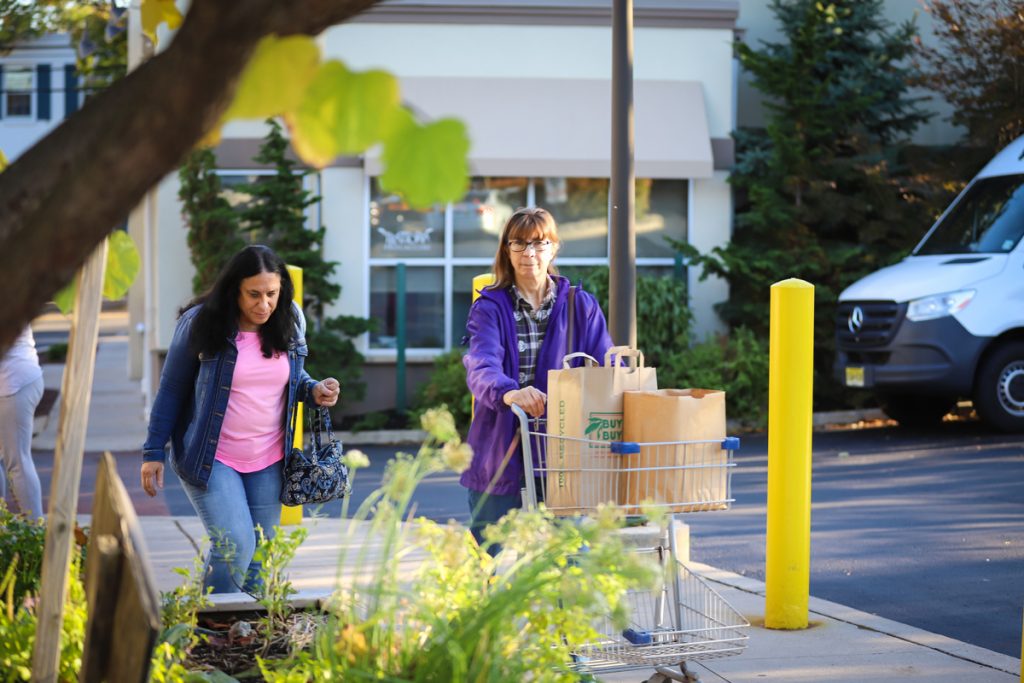Food waste is the single largest component of our waste stream. Composting is important, but focus on generating less waste by planning meals and shopping smarter.
With a few simple changes, you can lower your grocery bills too.
Make a plan.
Meal planning saves time, stress, money, and typically results in less food waste.
- Take inventory. What do you have in the fridge? Can you use anything for next week’s meals?
- Keep it simple. Start with regular recipes and slowly add in new ones so you are familiar with what you need.
- Think double-duty. Ingredients often come in larger portions than we need. Plan a second meal around those items.
- There’s an app. Make use of shopping and recipe apps, such as Mealime, Veganized, or Mealboard.
- Cook batches. Make stews, soups or casseroles in large batches and freeze them for later use.
- Eat fresh. Ensure you eat greens and meats while they are still fresh. Freeze foods for later if they aren’t in your week’s meal plan.
- Schedule downtime. If you find cooking to be a chore, plan for the occasional take-out or restaurant meal so you don’t get overwhelmed.

Shop smart.
Get the most out of your grocery store spending.
- Don’t be tempted. Stick to your list or a specified budget to ensure you don’t purchase unnecessary foods that will go to waste. Consider biking or walking to naturally limit what you can bring home.
- Think quantity. In Princeton, Whole Earth Center has bulk bins that allow you to get only what you need (any allows you to reduce unnecessary packaging). At any store, work with deli staff to get the right amount of counter items.
- Keep it fresh. Don’t add perishables to your cart until check-out time, dry off damp fruit, and be sure to put perishables away promptly. Remember, you don’t need to put every item in its own plastic bag — they often live together in the fridge, so put them together into a reusable bag when purchasing.
- Think frozen. Frozen foods are less perishable and provide a great option for hectic evenings.
- Advocate for ugly fruit. Consider that you don’t need perfect looking fruits and veggies — they all provide the same nutrition. Farmers’ markets can be a good source of cosmetically-challenged veggies.
- Perform an audit. Track what you waste and why, so you can learn what your family is eating and how to save money by shopping smarter.
Take this a step further by reviewing our tips on low-waste meals.
Want more ideas? One great resource we suggest is the Waste-Free Kitchen Handbook.
Did you know?
What are you buying? In our country, over 30% of food never gets eaten. The average American family is literally throwing away hundreds of dollars worth of uneaten food each year.
Meal planning makes sense. One study showed that shoppers who use specific written shopping lists make fewer impulse purchases, take fewer trips to the store, and have lower grocery bills.




